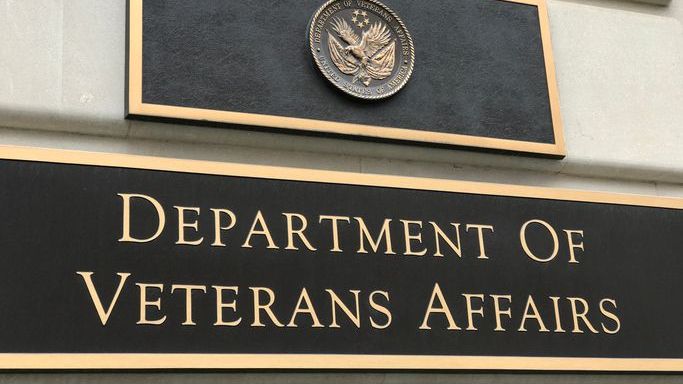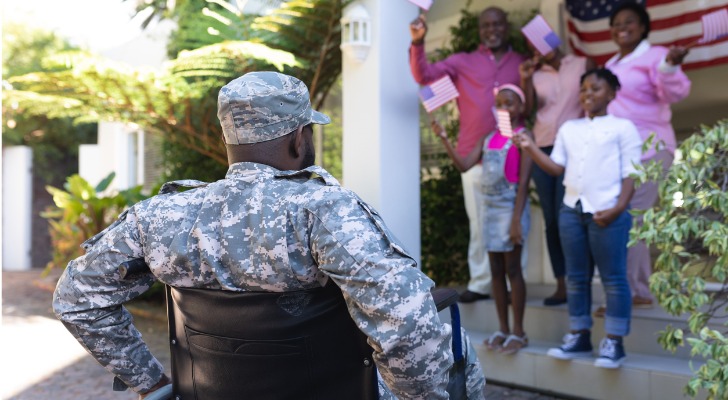Losing a loved one who served in the military can be an emotionally and financially challenging time for surviving spouses and children. The VA Survivors Pension can serve as a lifeline to eligible survivors by providing a tax-free monetary benefit to help them make ends meet. Surviving spouses and unmarried dependent children of wartime veterans who have died may be eligible for these monthly payments if they meet specific service, income and net worth requirements.
A financial advisor with estate planning expertise can help you make a plan for your assets and loved ones when you’re gone. Find a fiduciary financial advisor today.
What Is the VA Survivors Pension?
Established under the Servicemen’s and Veterans’ Survivor Benefits Act of 1956, the VA Survivors Pension was created to ensure that the families of veterans who have made sacrifices for their country are not left without support. This tax-free monetary benefit is a monthly payment made to eligible surviving spouses and unmarried dependent children of veterans who served during a period of war.
Also known as a “death pension,” the VA Survivors Pension is one of several potential resources available to eligible survivors. Other benefits include Dependency and Indemnity Compensation (DIC) and the Civilian Health and Medical Program of the Department of Veterans Affairs (CHAMPVA).
Who’s Eligible for the VA Survivors Pension?
Eligibility requirements vary based on whether the surviving beneficiary is a spouse or dependent.
Surviving Spouse Eligibility
For a surviving spouse to be eligible for the VA Survivors Pension, they must remain unmarried and the deceased veteran must not have received a dishonorable discharge from service. Additionally, at least one of the following must apply:
- The deceased began active duty on or before Sept. 7, 1980, and served a minimum of 90 days, including at least one day during a designated wartime period, or
- The deceased entered active duty after Sept. 7, 1980, and served at least 24 months or the full term of active duty they were called to serve (with certain exceptions), including at least one day during a designated wartime period, or
- The deceased was an officer who began active duty after Oct. 16, 1981, without having previously completed at least 24 months of active duty.
Lastly, a surviving spouse’s net worth also must be within specified limits. Net worth, which includes both assets and income, must be less than $155,356 (effective from Dec. 1, 2023 to Nov. 30, 2024). However, primary residences and cars do not count toward a person’s net worth.
Surviving Children Eligibility
Surviving children may also be eligible for the VA Survivors Pension if they meet the following criteria:
- They’re under 18 years of age, or under 23 if attending a VA-approved school
- Permanently incapable of self-support due to a disability that occurred before the age of 18
- Unmarried
A child is considered “permanently incapable of self-support” if they have a physical or mental disability that prevents them from earning a living wage and the disability occurred before their 18th birthday.
What Wartime Periods Are Covered?

Understanding the wartime periods covered is essential for survivors seeking to apply for this benefit. The VA recognizes several wartime periods for the Survivors Pension:
- World War II (Dec. 7, 1941 – Dec. 31, 1946)
- Korean War (June 27, 1950 – Jan. 31, 1955)
- Vietnam War (Feb. 28, 1961 – May 7, 1975 for veterans who served in Vietnam, and Aug. 5, 1964 – May 7, 1975 for veterans who served outside of Vietnam)
- Gulf War (Aug. 2, 1990 – a future date to be set by law or Presidential Proclamation)
It is important to note that the veteran did not need to serve in combat or in the country where the war took place to be eligible, but they must have served at least one day during the specified wartime periods and met other service requirements.
Calculating Your Benefit
A VA Survivors Pension benefit determined by several factors, including the recipient’s countable income, net worth and number of dependents. Whether the recipient also qualifies for Housebound or Aid and Attendance benefits also impacts the size of their Survivor Pension.
| Qualified Surviving Spouses With at Least One Dependent | MAPR Amount |
|---|---|
| Ineligible for Housebound or Aid and Attendance benefits | $14,529 |
| Eligible for Housebound benefits only | $16,989 |
| Eligible for Attendance benefits only | $21,166 |
| Qualified Surviving Spouses With No Dependents | MAPR Amount |
|---|---|
| Eligible for Housebound or Aid and Attendance benefits | $11,102 |
| Eligible for Housebound benefits only | $13,568 |
| Eligible for Attendance benefits only | $17,743 |
To calculate pension benefits, the VA subtracts a recipient’s countable income from their Maximum Annual Pension Rate (MAPR), a Congressionally-set value that’s adjusted each year to account for annual cost-of-living increases.
The income the VA considers in this calculation includes the recipient’s wages from employment, Social Security benefits and any investment income they may have. However, certain expenses, like unreimbursed medical costs, may be deducted from the total income when determining eligibility.
In 2024, the MAPR for qualified surviving children is $2,831. An eligible surviving spouse’s MAPR will depend on several factors, including whether or not they have any dependents.
Let’s take the example of the surviving spouse of a veteran who served in the Gulf War, has one dependent child, an income of $12,000 per year and also qualifies for Aid and Attendance benefits. To calculate her monthly VA Survivors Pension, the spouse would have to subtract her income from her corresponding MAPR ($21,166 – $12,000) and divide by 12. As a result, her monthly VA Survivors Pension would be approximately $764 per month.
Applying for a VA Survivors Pension

Applying for the VA Survivors Pension involves several steps and requires careful preparation to ensure all necessary documentation is included. Here is a streamlined guide to help navigate the process:
- Gather necessary documents: These may include proof of the veteran’s military service (DD Form 214 or equivalent), the death certificate of the veteran, a marriage certificate (for surviving spouses), birth certificates or adoption papers (for dependent children).
- Complete the application: The primary form to complete is VA Form 21-534EZ, “Application for DIC, Death Pension, and/or Accrued Benefits.”
- Submit the application: Applications can be submitted in a number of ways, including through VA’s eBenefits online portal, by mail or in person at a VA office. It’s recommended that you keep copies of all submitted documents and obtain a receipt if submitting in person.
- Follow up: After submission, the VA will process the application and may need additional information from the applicant. Staying in contact with the VA and promptly responding to any requests can potentially help expedite the process.
Bottom Line
The VA Survivors Pension is an important financial lifeline for eligible surviving spouses and children of deceased wartime veterans. By understanding the eligibility criteria, covered wartime periods and factors affecting benefit calculation, survivors can determine if they qualify for this valuable support.
Estate Planning Tips
- When a person dies, their estate is often subjected to probate, the court-supervised process for validating a decedent’s will. Not only does your will become public record during probate, but the process can take over a year a some cases and require your estate to pay for court fees and attorneys fees. However, there are ways to avoid probate, like establishing a revocable living trust and using different types of joint ownership of assets.
- A financial advisor with estate planning expertise can help you organize your estate and make a plan for what will happen to your assets when you’re gone. Finding a financial advisor doesn’t have to be hard. SmartAsset’s free tool matches you with up to three vetted financial advisors who serve your area, and you can have a free introductory call with your advisor matches to decide which one you feel is right for you. If you’re ready to find an advisor who can help you achieve your financial goals, get started now.
Photo credit: ©iStock.com/AleksandarGeorgiev, ©iStock.com/Kiyoshi Tanno, ©iStock.com/Wavebreakmedia
